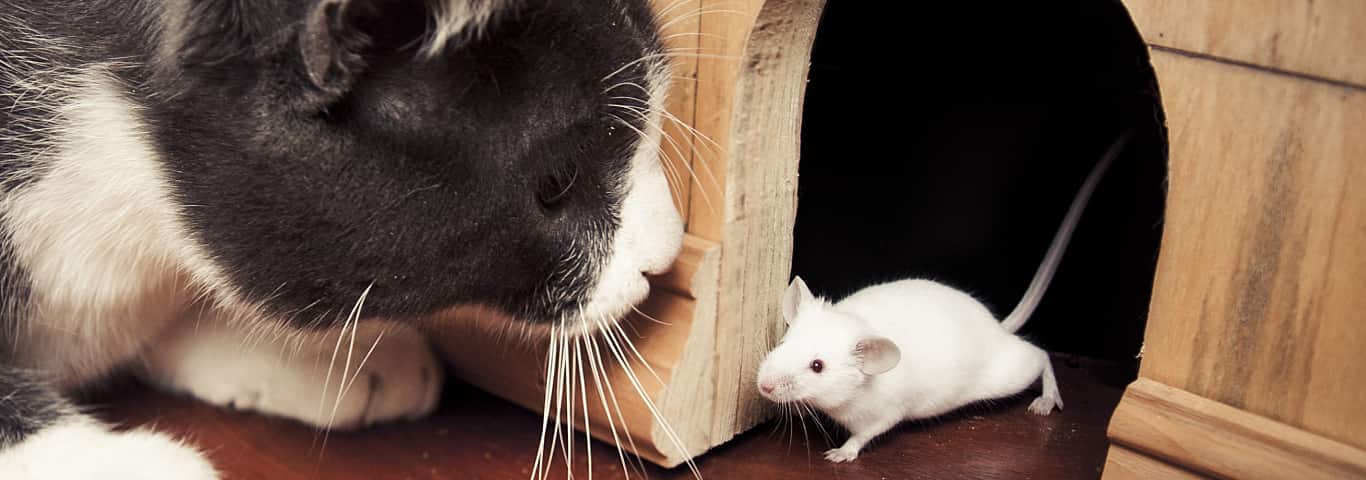
Cats are renowned for their exceptional ability to catch mice, a skill that has made them valuable companions to humans for centuries. This innate talent is rooted in their biology, behavior, and evolutionary history, making them formidable hunters of small rodents like mice. In 500 words, let's explore why cats are so adept at catching mice.
1. Instinctual Predatory Behavior: Cats are natural-born hunters with a strong predatory instinct. This behavior is hardwired into their DNA, a legacy of their wild ancestors. Cats possess sharp claws, keen eyesight, and excellent night vision, which they use to stalk and capture prey, including mice.
2. Silence and Stealth: Cats are incredibly stealthy animals. They can move quietly and stealthily, thanks to their soft paw pads, which allow them to approach their prey silently. This stealthiness is essential when hunting mice, as sudden movements or noise can startle these small, skittish creatures.
3. Agility and Speed: Cats are agile and quick on their feet. They can pounce on their prey with incredible speed and accuracy. Mice are fast and agile too, but cats have the advantage of being able to leap and change direction rapidly, making them formidable opponents in a game of cat and mouse.
4. Sharp Teeth and Claws: Cats have sharp teeth and retractable claws, both of which are designed for capturing and dispatching prey. Their teeth are designed to puncture and hold onto small animals like mice, while their claws can be extended to grasp and immobilize their quarry.
5. Patience and Ambush: Cats are patient hunters. They often crouch and wait in silence for the perfect moment to strike, using their natural camouflage to blend into their surroundings. This ambush strategy is highly effective against mice, which may not even see the cat coming until it's too late.
6. Enhanced Senses: Cats have highly developed senses, including acute hearing and an excellent sense of smell. They can detect the faintest rustling of a mouse's movements or the scent of a hidden nest. These heightened senses give them a significant advantage in locating and stalking their prey.
7. Persistence: Cats are persistent hunters. If they miss a catch, they will often continue their pursuit until they succeed. Their tenacity and determination make them formidable mouse hunters, as they rarely give up once they've identified a potential target.
8. Evolutionary History: Domestic cats share a common ancestor with wildcats that relied heavily on hunting small mammals for survival. Over thousands of years, this evolutionary history has honed their hunting skills. Domestic cats have retained many of the physical and behavioral traits that made their ancestors successful hunters.
9. Efficient Killers: Cats do not simply catch mice; they are also efficient killers. They often deliver a swift and precise bite to the back of the mouse's neck, instantly paralyzing or killing it. This efficiency reduces the risk of injury to the cat and ensures a quick and humane end for the prey.
10. Pest Control: The ability to catch mice has practical benefits for humans. Historically, cats were kept on farms and in households to control rodent populations, helping protect food stores and prevent the spread of disease. Even today, many people keep cats as pest controllers.
In conclusion, cats are exceptionally skilled at catching mice due to a combination of factors, including their predatory instincts, agility, stealth, sharp teeth and claws, heightened senses, and evolutionary history as hunters. Their natural abilities make them efficient and effective mouse hunters, a trait that has endeared them to humans for centuries and earned them the reputation of being one of nature's most proficient hunters.
